
Transcription
Well Written, Concise + thought provoking! :) 19/20
Goehler, C00961190
Hum C100/44203
Carpenter
APR 28 2021
4-24-21
Alternative Extra Credit
THE QUEST NARATIVE
Perception Key p. 177
*How does the quest help the protagonist get to know himself better?
*Does the quest help you understand yourself better?
*Is the quest novel basically episodic or organic in structure?
-THE ADVENTURES OF HUCKLEBERRY FINN -
After his adventures with Tom Sawyer made them rich with reward money, the Adventures of Huckleberry Finn introduces the protagonist in this quest narative. The motherless 14 year old boy resents the domesticating efforts of an endearing widow who took him in, and her hen-pecking sister Miss Watson. Unable to conform to their acculturating bible myths and spelling books, Huck determined to run away back to a prefered counter culture, and start a gang of highway men intent to rob and murder travellers -as was the alternative wild west culture portrayed in the literature of those days. Hence, Huck's sense of adventure will send him on an episodic quest for freedom and consequently meet with crisis after crisis which will serve to provide plot reversals necessary in his self discovery.
With a town sot for a father, Huck wasn't given much to revere and emulate other than the wild west tales. Therefore, knowing himself well enough to know what he didn't want his life to become, Huck relinquishes his riches before it brings his Pap back to try bullying him out of it. He did come and try of course, thus introducing another episode among many crisis where our protagonist must determine his responsibility to determine the course of his life. For instance, at first [yes!] Huck grows complacent as his Paps hostage, living in leisure. But eventually Huck's wanderlust impels him to escape. Staging a gruesome scene indicating Huck was murdered and thrown in the river, he no longer exists and is free to roam.
Intent to pursue his freedom on the run, Huck meets up with the widow's run-away slave Jim, who thinks Huck is a ghost. This encounter choges the plot of this quest somewhat in that now Huck has an altruistic crisis to distinguish his purpse, eg. turn in the runaway as culture dictates, and expose himself as living in the process, or help Jim reach safe haven and gain his freedom.
After many such episodic crisis to distinguish the actual character of Huck, the counter culture ideals involved with freeing a run-away slave (who was in fact free), served to ennoble Huck's bestial nature enough for him to ultimately understand the hypocritical values of "sivilization" has values he doesn't agree with, yet he is free to not oppose those values others live by.
Having much in common with Huck Finn, I had also rebelled against the hypocritical values of this culture. Reading this quest narative helped me undestand as well; I don't have to agree with this cultures values, beliefs and norms - nor oppose those values, beliefs and norms others live by. Before I understood that I was free to simply be myself, I had misuderstood my rebel nature had to oppose status quo, or be subjugated by such. Its taken 23 years exiled to penal colonies and lots of reflecting on the decisions I'd made this life for me to truly appreciate the distinguishing character of Huck Finn. I intended for my choice this life to distinguish my character as well. I live with those decisions and I'm a better man today because of them.
[use more examples from the book to support this!]
:)
Other posts by this author
|
2023 may 31

|
2023 apr 5
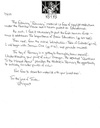
|
2023 mar 19
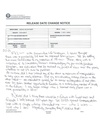
|
2023 mar 5
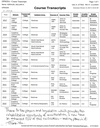
|
2023 mar 5
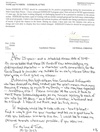
|
2023 mar 5

|
More... |
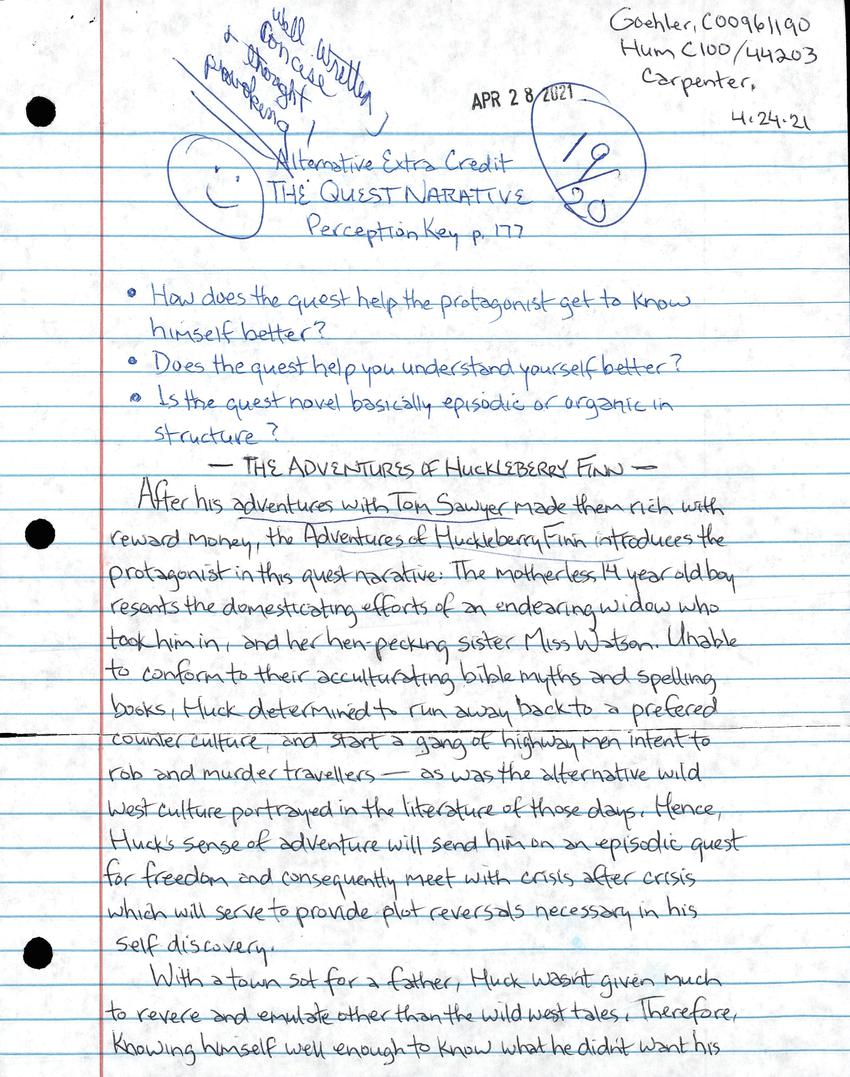
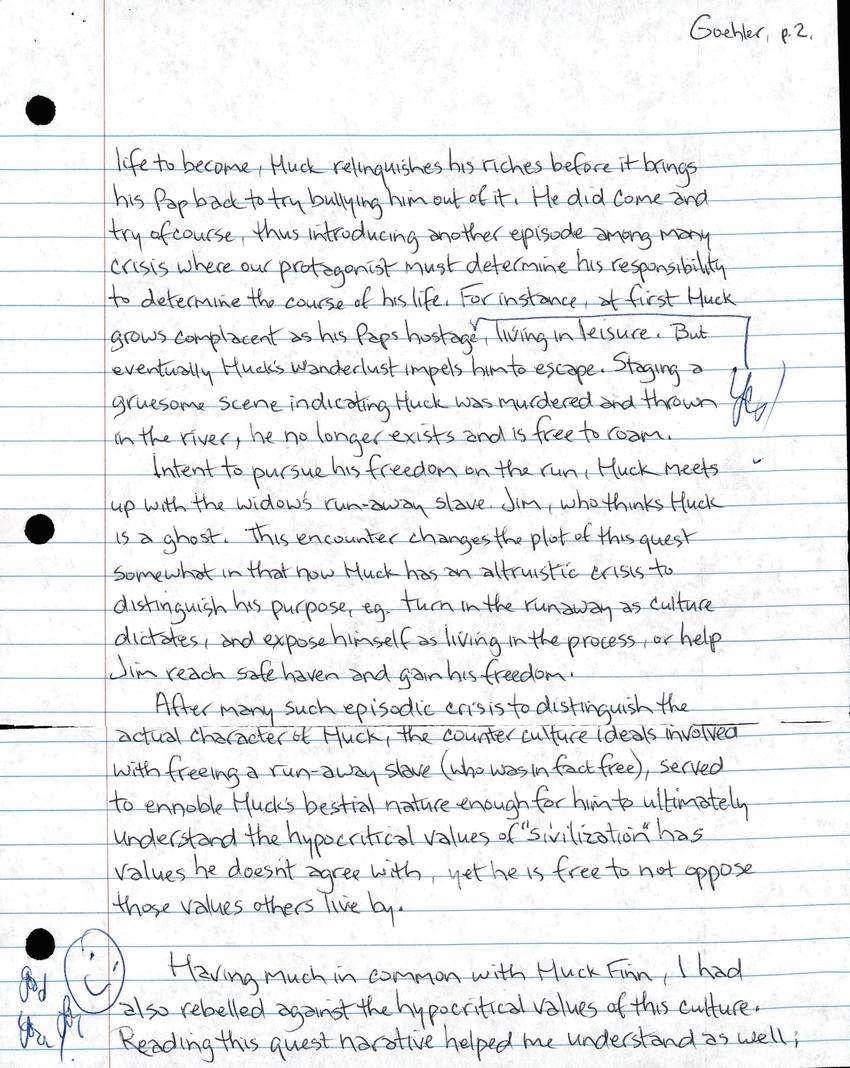
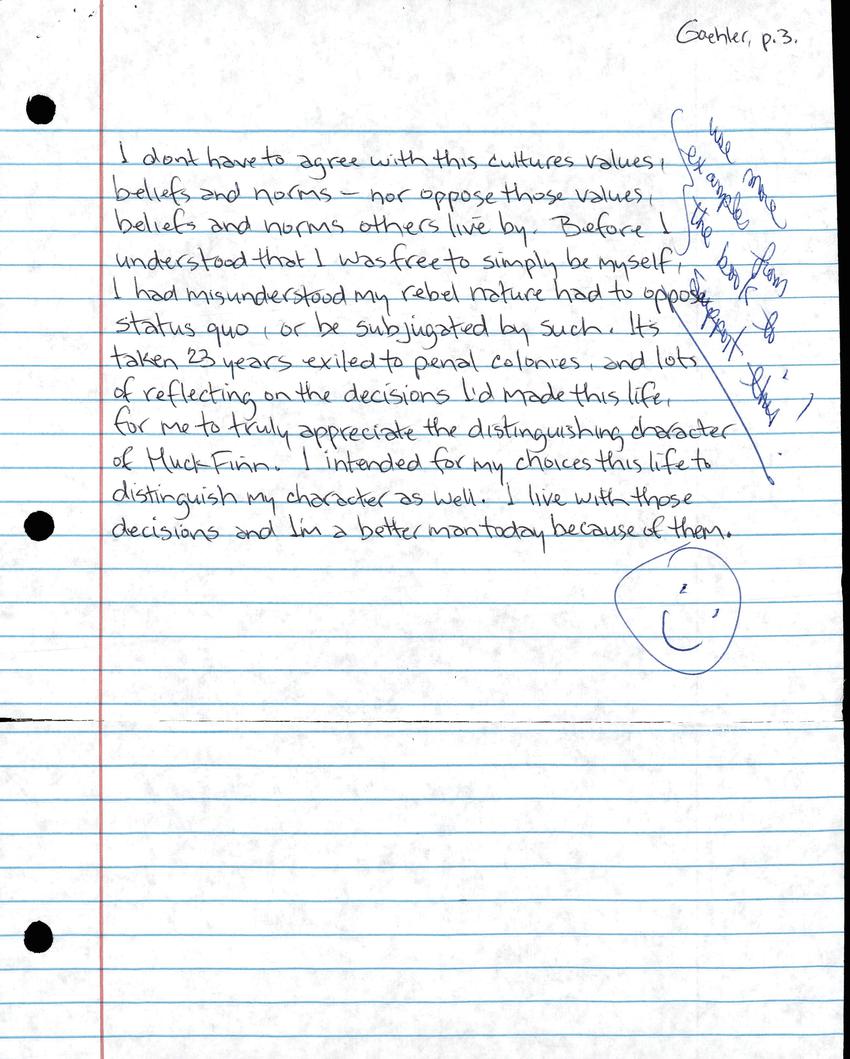

Replies